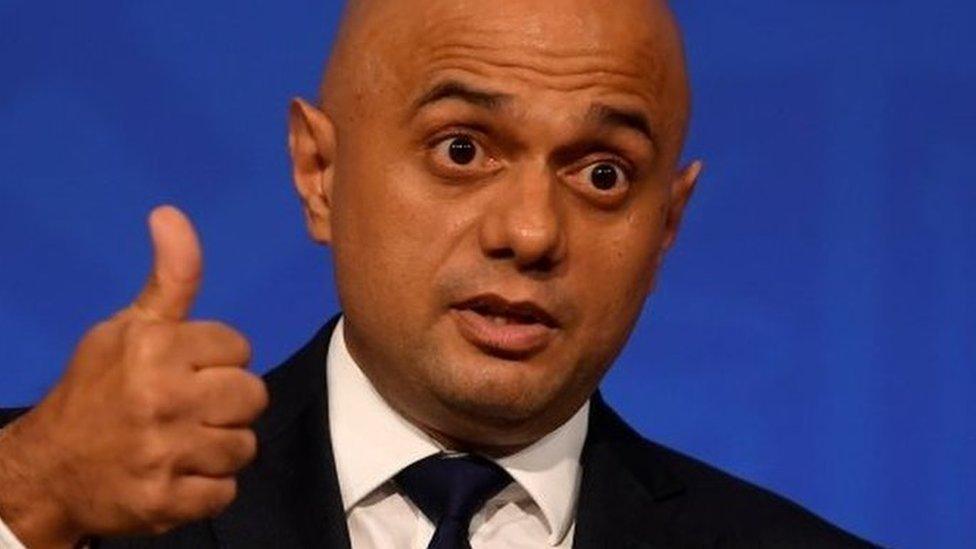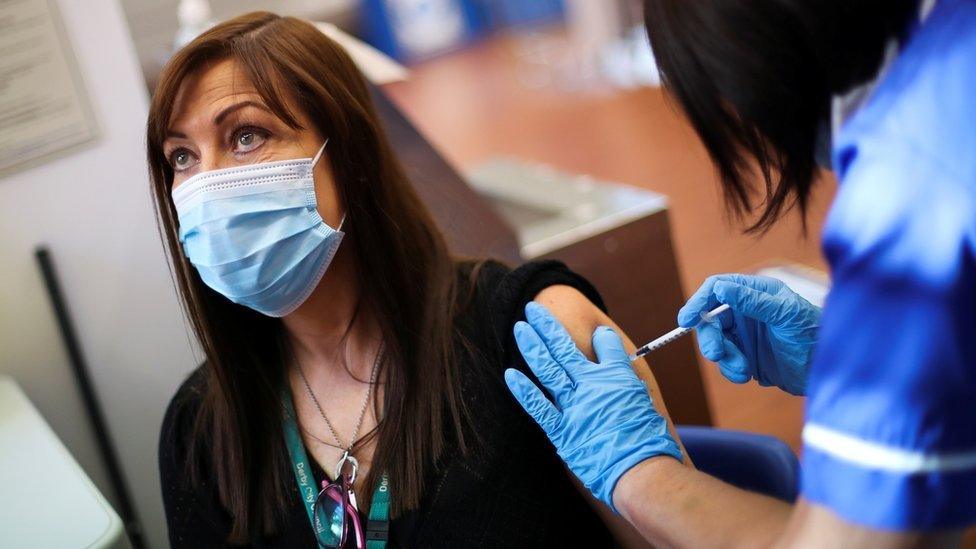Caution urged but nerves over Covid next stage
- Published

Without offending the health secretary or the two eminent medics who stood alongside him, there was something depressingly familiar about the Downing Street press conference.
We were told that indicators are "going in the wrong direction".
Sajid Javid warned that cases could hit 100,000 a day, higher than they have been at any time since testing was widespread.
The public was again urged to be cautious, to think about their behaviour, whether that's wearing masks in crowded places, using lateral flow tests to keep checking on your own health, or trying to meet people outdoors where you can.
Quite how the mask message comes across given that few MPs on the government side wear masks in the Commons chamber is a legitimate question.
But the message from the minister and medics was to make sure you have your vaccine if you haven't yet, or to get your booster jab if you are eligible, even though there is anecdotal evidence that the programme's not yet working as smoothly as it should.
In other words, everyone must still be willing to do their bit.
The concern is clear.
But what is also obvious is that the government does not want to push the button on introducing any further compulsory restrictions, let alone their whole Plan B, which would reintroduce working at home in England and vaccine passports too.
It is important to remember that the situation is very different to 12 months ago.
The vaccination programme has transformed the situation, and has completely changed the calculation for ministers about the risks of coronavirus cases spreading, versus the many downsides of restrictions.
But there are nerves in Westminster about what might happen next. The health secretary warned the pandemic is not over, and the government's efforts to control it can't be either.
And once again, at those famous three lecterns in Downing Street, ministers are asking all of us to think again about how we act.
The ultimate fear from the government's critics is that, in an echo of last autumn, their actions to control the disease could come too late.
Related topics
- Published20 October 2021

